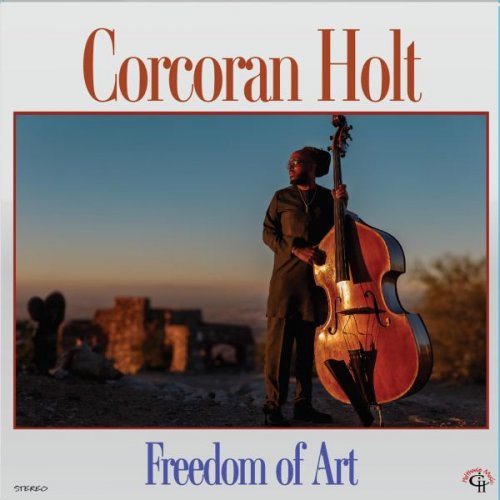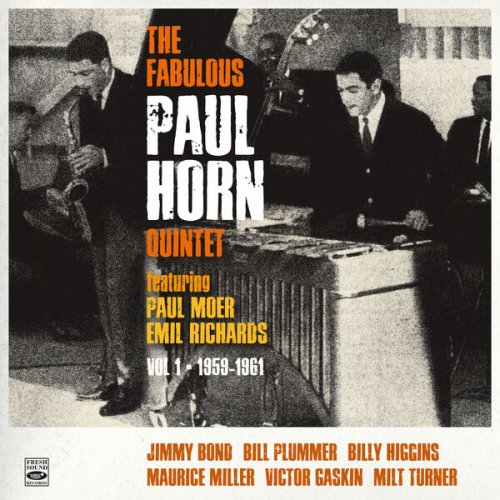Franco D'Andrea Trio - Standards of the Big Band Era (Chapter 2) (2003)

Artist: Franco D'Andrea Trio, Ares Tavolazzi, Massimo Manzi, Franco D'Andrea
Title: Standards of the Big Band Era (Chapter 2)
Year Of Release: 2003
Label: Philology
Genre: Jazz, Contemporary Jazz
Quality: FLAC (tracks)
Total Time: 1:04:22
Total Size: 378 MB
WebSite: Album Preview
Tracklist:Title: Standards of the Big Band Era (Chapter 2)
Year Of Release: 2003
Label: Philology
Genre: Jazz, Contemporary Jazz
Quality: FLAC (tracks)
Total Time: 1:04:22
Total Size: 378 MB
WebSite: Album Preview
1. Topsy (05:53)
2. Take The "A" Train (07:44)
3. Better Git It In Your Soul (05:59)
4. Early Autumn (04:29)
5. King Porter Stomp (03:57)
6. Artistry In Rhythm (03:16)
7. I'm Getting Sentimental Over You (05:33)
8. The Midnight Sun Will Never Set (05:53)
9. One O'Clock Jump (05:21)
10. Eleven (03:53)
11. Take The "A" Train (Alternate Take) (07:37)
12. The Midnight Sun Will Never Set (Alternate Take) (04:13)
The adventurous spirit of pianist Franco d'Andrea and Philology owner and producer Paolo Piangiarelli makes for always compelling recording sessions. Over three daily sessions, d'Andrea, accompanied by bassist Ares Tavolazzi and drummer Massimo Manzi, performed songs associated with various bands, but not always exclusively the swing era, as the series title Standards of the Big Band Era states. The second volume begins with a most unusual interpretation of "Topsy" with occasionally sparse, almost Monk-like piano, and showcasing all three trio members. "Take the 'A' Train" begins with a moody bass vamp and quirky piano, as if someone is impatiently awaiting a late-night subway line that is overdue, before gradually transforming into a more swing-like setting, even though it still incorporates elements of post-bop throughout the piece. Charles Mingus would likely approve of the buoyant arrangement of his gospel-flavored "Better Get Hit in Yo' Soul." Fans used to Benny Goodman's recordings of Jelly Roll Morton's "King Porter Stomp" are in for a surprise; d'Andrea's turbulent approach makes it sound like a entirely new work. Tavolazzi's melodic bass introduces the very boppish take of "I'm Getting Sentimental Over You," a piece forever associated with swing stylist Tommy Dorsey. D'Andrea delves into stride, bop, post-bop, and finally swing in his wonderfully disguised introduction to "One O'Clock Jump." Not to overlook Manzi's sensitive drumming throughout the CD; he also contributed the intriguing series of photos that serve as the covers for each of the three highly recommended volumes in the series. © Ken Dryden


![Nathalie Darche, Alban Darche, Geoffroy Tamisier, Chloé Cailleton - Dandy Dandie - Helios y Selene (2026) [Hi-Res] Nathalie Darche, Alban Darche, Geoffroy Tamisier, Chloé Cailleton - Dandy Dandie - Helios y Selene (2026) [Hi-Res]](https://www.dibpic.com/uploads/posts/2026-02/1772112437_snbggfr6gccwr_600.jpg)



![Jazz at Lincoln Center Orchestra & Wynton Marsalis - We the People (2026) [Hi-Res] Jazz at Lincoln Center Orchestra & Wynton Marsalis - We the People (2026) [Hi-Res]](https://www.dibpic.com/uploads/posts/2026-02/1772178708_cover.jpg)

